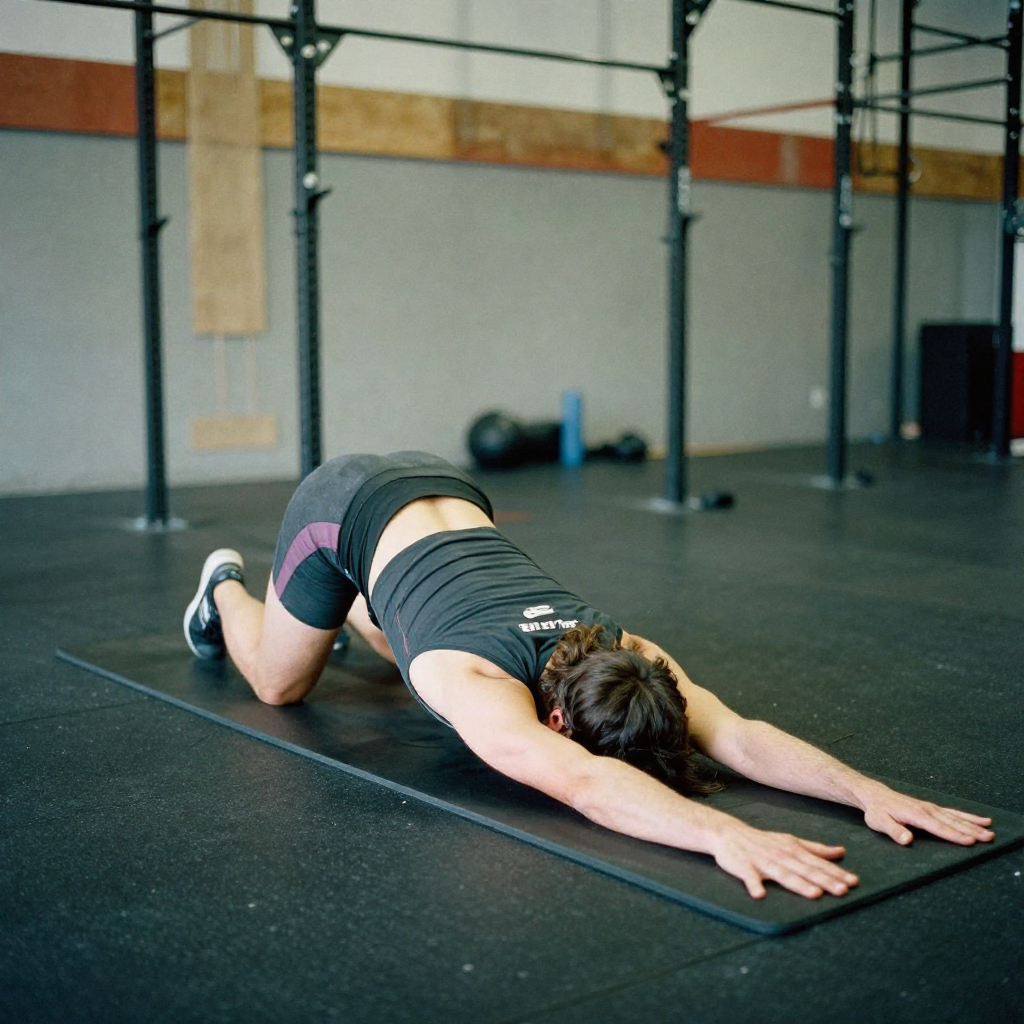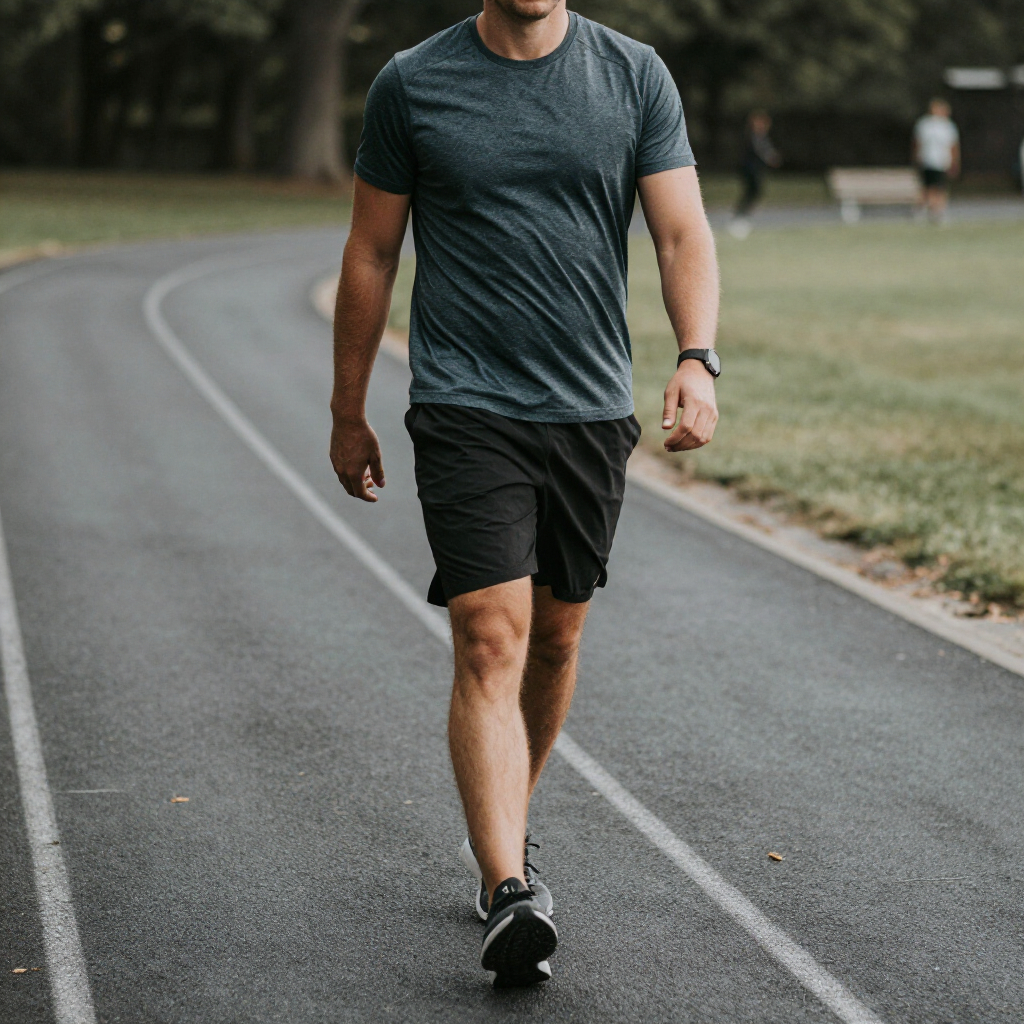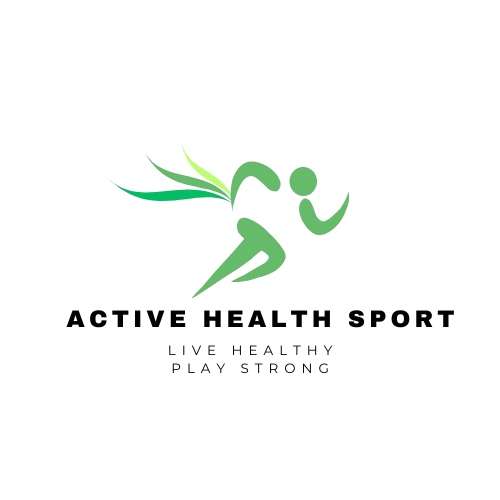Water is the essence of life. Every cell, tissue, and organ in your body needs water to function properly. Yet, many people still struggle to understand the full importance of staying hydrated. Whether you’re working out, at the office, or simply going about your day, keeping your body well-hydrated is essential to your overall health and performance.
At Active Health Sport, we believe daily water intake is a cornerstone of any wellness journey, and understanding how much water you should drink daily is crucial. In this comprehensive blog guide, we’ll break down the science of hydration, explore how much water you should be drinking, and provide tips on how to stay hydrated throughout the day. So, let’s dive in and learn how to prioritize hydration for your health!
Why Hydration Matters | The Science Behind Water in Your Body
Water makes up about 60% of your body weight and plays a critical role in many bodily functions. From temperature regulation to nutrient transport, hydration is involved in almost every process that keeps you alive and thriving. Let’s look at some of the key reasons why hydration is so important:
1. Maintains Body Temperature
Water helps regulate your body’s temperature by dissipating heat when you sweat and releasing heat during evaporation. Proper hydration is particularly important when you’re active or in hot environments to avoid heat exhaustion or heat stroke.
2. Supports Digestion and Nutrient Absorption
Water is vital for the digestion process. It aids in breaking down food so that your body can absorb the nutrients more effectively. Dehydration can lead to constipation and poor nutrient absorption, which can affect overall health.
3. Lubricates Joints
Water keeps the cartilage in your joints hydrated, which allows for smooth movement and prevents friction. Dehydration can lead to joint pain and discomfort, making it harder to stay active.
4. Detoxification
The kidneys rely on water to filter toxins from the blood and eliminate waste through urine. Without sufficient hydration, the kidneys struggle to function properly, which can lead to kidney stones or urinary tract infections.
5. Boosts Energy and Mental Clarity
Dehydration can affect your brain function, leading to tiredness, headaches, and difficulty concentrating. Staying hydrated helps maintain mental focus and clarity, allowing you to feel energized and productive throughout the day.
6. Supports Skin Health
Drinking enough water hydrates your skin from the inside out, promoting a healthy, glowing complexion. Dehydration can make your skin look dry, flaky, and more prone to wrinkles.
How Much Water Should You Drink?
The amount of water you need to drink daily depends on several factors, including your age, weight, gender, activity level, and climate. However, the general recommendation is to drink at least 8 cups (64 ounces) of water per day, known as the “8×8 rule.” But is this enough? Let’s break it down further.
The 8×8 Rule
The 8×8 rule suggests drinking eight 8-ounce glasses of water each day, which equals about 2 liters or half a gallon. While this guideline is simple and easy to remember, it may not be enough for everyone. Let’s explore how to tailor your water intake based on your specific needs.
Individual Factors That Affect Water Intake
- Age and Gender
- Men typically need more water than women due to higher muscle mass and higher metabolic rates. On average, men should aim for around 3.7 liters (13 cups) of water per day.
- Women generally need about 2.7 liters (9 cups) of water per day. Pregnant or breastfeeding women may need additional hydration to support their bodies’ increased water demands.
- Physical Activity If you’re active, especially if you’re engaging in sports or exercise, you’ll need more water to compensate for the fluid lost through sweat. For every 30 minutes of moderate exercise, try to drink an extra 1.5 to 2 cups of water.
- Climate and Environment Hot and humid weather can lead to increased sweating and fluid loss. If you live in a warmer climate or are spending a lot of time outdoors, you’ll need to drink more water to stay properly hydrated.
- Health Conditions Certain health conditions, such as fever, vomiting, or diarrhea, can increase your body’s need for water. Additionally, individuals with kidney or heart problems may require more specific hydration guidelines from their healthcare provider.
- Dietary Factors Foods such as salty snacks, spicy foods, and caffeine can increase your body’s need for water. A diet high in fiber also requires extra water to help with digestion and prevent constipation.
Also Read the Latest: Why Hydrogen-Infused Water Is the Newest Health Trend
Signs of Dehydration: Recognizing the Early Warning Signs
Dehydration occurs when your body loses more fluids than it takes in, disrupting its normal functioning. It’s a condition that can develop gradually or suddenly, and if left unchecked, it can have serious consequences for your health. While drinking water throughout the day is essential to staying hydrated, it’s equally important to listen to your body. Our bodies are designed to give us signals when hydration levels are dropping. The earlier you recognize these signs, the quicker you can take action to restore balance and prevent complications.
1. Dry Mouth or Throat
One of the earliest and most noticeable signs of dehydration is a dry mouth or throat. As your body’s water supply dwindles, your salivary glands produce less saliva, leaving your mouth feeling parched. Your throat may also feel scratchy or dry, making it uncomfortable to swallow. If you notice these symptoms, it’s time to reach for a glass of water. Persistent dry mouth can also make it harder to talk, and if dehydration continues, it could lead to a sore throat and difficulty swallowing.
Why It Happens:
Your body needs water to produce saliva, which aids in the digestive process and keeps your mouth moist. Dehydration reduces saliva production, leading to a dry sensation.
2. Dark Yellow Urine
One of the most reliable indicators of dehydration is the color of your urine. If your urine is dark yellow, amber, or brownish in color, it’s a clear sign that you’re not drinking enough water. Healthy urine should be a pale yellow or almost clear, signaling that you’re properly hydrated. Dark urine suggests that your body is conserving water, and it’s an indication that your kidneys are working overtime to concentrate your urine due to a lack of hydration.
Why It Happens:
When you’re dehydrated, your kidneys attempt to conserve water by concentrating urine to prevent further fluid loss. This makes urine appear darker.

3. Fatigue or Dizziness
Dehydration can cause a drop in blood pressure and a reduction in blood volume, leading to feelings of fatigue or dizziness. If you find yourself feeling unusually tired or lightheaded, especially after physical activity or being in a hot environment, dehydration may be the culprit. In severe cases, dehydration can cause fainting or confusion, so it’s essential to take action quickly.
Why It Happens:
When you’re dehydrated, your blood volume decreases, and your heart has to work harder to pump oxygen-rich blood to your muscles and brain. This can lead to feelings of exhaustion or dizziness.
4. Headaches
Headaches are another common symptom of dehydration. When your body is lacking water, it can cause your brain to shrink temporarily, which may lead to pain or discomfort. Dehydration-induced headaches can range from mild to severe, and they often worsen with physical exertion or exposure to heat.
Why It Happens:
Lack of hydration can cause changes in your brain’s fluid balance, leading to tension and headaches. Dehydration also reduces the blood flow to your brain, which can trigger pain.
5. Reduced Urine Output
A significant decrease in urine output, or the absence of urination for several hours, is a clear sign of dehydration. If you’re not producing urine regularly or you’ve noticed a drastic reduction in the volume of urine, this indicates that your body is holding on to water to prevent further fluid loss. This is particularly concerning because it suggests that your kidneys are struggling to function effectively.
Why It Happens:
When you’re dehydrated, your kidneys prioritize water conservation to maintain essential functions. This reduces the frequency and volume of urine production.
6. Skin That Doesn’t Bounce Back When Pinched
Another subtle but important sign of dehydration is a decrease in skin elasticity. If you pinch your skin and it takes longer than usual to return to its normal position, you may be dehydrated. This is commonly known as “skin turgor” and is a key indicator of fluid levels in the body. The less hydrated you are, the slower your skin will bounce back when pinched. Skin that remains “tent-like” or holds a pinched shape for an extended period should be taken seriously.
Why It Happens:
Dehydration causes the skin to lose its moisture and elasticity, making it more prone to sagging and slower to return to its normal position.
7. Cracked Lips or Dry Skin
Dehydration can also affect your skin, causing it to become dry, flaky, and even cracked, particularly around the lips. Dry, chapped lips are a common sign of dehydration, as your skin becomes unable to retain moisture. Similarly, your skin may appear dull, tight, or rough to the touch. In severe cases, dehydration can lead to cracked skin that’s painful or susceptible to infection.
Why It Happens:
When you’re dehydrated, your body prioritizes water for internal organs, leaving your skin vulnerable to moisture loss. This can cause your skin to feel dry, tight, or even irritated.
8. Bad Breath
Another often-overlooked sign of dehydration is bad breath or halitosis. As dehydration reduces the amount of saliva in your mouth, bacteria can begin to build up, leading to a foul odor. Saliva plays an essential role in washing away food particles and neutralizing acids in the mouth. Without enough water, bacteria thrive, resulting in bad breath.
Why It Happens:
Saliva is a natural disinfectant and helps maintain a healthy balance of bacteria in the mouth. Dehydration leads to reduced saliva production, which creates an environment where odor-causing bacteria can grow.
9. Muscle Cramps
If you’re experiencing muscle cramps, especially during physical activity, dehydration could be the cause. When you don’t drink enough water, the electrolytes in your body become imbalanced, leading to muscle spasms or cramps. Dehydration can make it harder for your muscles to contract and relax properly, increasing the risk of cramping during exercise or after exertion.
Why It Happens:
Water helps regulate electrolyte levels in your body, including sodium, potassium, and magnesium. Dehydration can disturb these electrolyte levels, leading to cramps and muscle weakness.
Also Read the Latest: Why More People Are Switching to Alkaline Water
What to Do When You Notice Dehydration Symptoms?
When you start noticing any of the symptoms of dehydration, it’s important to take immediate action. Here are some steps you can follow:
- Drink Water: If you experience any signs of dehydration, the first step is to drink water. Aim to drink small, consistent sips rather than large quantities all at once. This allows your body to absorb the water more effectively.
- Consume Electrolyte-Rich Drinks: If you’re severely dehydrated or have been sweating excessively, consider drinking beverages that contain electrolytes, such as sports drinks, coconut water, or oral rehydration solutions. Electrolytes help restore the balance of fluids in your body.
- Rest and Avoid Overexertion: If you’re feeling fatigued, dizzy, or lightheaded due to dehydration, it’s important to rest. Avoid any strenuous physical activity until you’ve fully rehydrated.
- Eat Hydrating Foods: In addition to drinking water, consuming hydrating foods such as fruits and vegetables can help. Foods like watermelon, cucumbers, and oranges contain high water content and can assist in rehydrating your body.
- Seek Medical Help: If you’re experiencing severe dehydration symptoms, such as confusion, rapid heartbeat, or fainting, seek medical attention immediately. Severe dehydration requires professional treatment, such as intravenous (IV) fluids, to restore hydration quickly.
Also Read: Top Signs You’re Dehydrated and How to Fix It Quickly
What are the Best Practices for Staying Hydrated?
Hydration isn’t just about drinking plain water. There are many ways to ensure you’re staying hydrated throughout the day. Here are some helpful tips:
1. Start Your Day with Water
Make it a habit to drink a glass of water first thing in the morning. This helps jump-start your hydration for the day and replenishes the fluids lost during sleep.
2. Carry a Water Bottle
Keep a reusable water bottle with you at all times. This makes it easy to take a sip whenever you’re thirsty, whether you’re at work, the gym, or running errands.
3. Eat Water-Rich Foods
Incorporate foods with high water content into your diet. Fruits like watermelon, cucumbers, oranges, and strawberries are not only nutritious but also provide hydration.
4. Flavor Your Water
If plain water doesn’t excite you, try infusing it with fruits, herbs, or even a splash of lemon. This can make drinking water more enjoyable while still providing the hydration your body needs.
5. Monitor Your Hydration
Pay attention to your hydration levels throughout the day. Check the color of your urine – light yellow to clear urine is a good sign that you’re hydrated, while darker urine may indicate dehydration.
6. Hydrate During Exercise
When exercising, it’s important to replenish the fluids lost through sweat. Drink water before, during, and after your workout to stay hydrated.
7. Avoid Sugary Beverages
While it might be tempting to reach for soda or sugary drinks, these don’t hydrate your body as effectively as water. In fact, they can contribute to dehydration due to their high sugar content.
8. Take Small Sips Throughout the Day
Instead of drinking large amounts of water all at once, take small sips throughout the day. This helps your body absorb the water more efficiently and keeps you consistently hydrated.
Hydration and Performance | How Proper Hydration Impacts Your Physical Activity
Hydration is often one of the most overlooked aspects of physical performance, yet it plays a crucial role in ensuring optimal results in any form of exercise. Whether you’re an elite athlete or someone who enjoys regular physical activity, proper hydration is essential for achieving your best performance, enhancing endurance, preventing injury, and ensuring effective recovery.
As a result, dehydration can quickly take a toll on your ability to perform physically. Staying hydrated helps maintain your body’s core functions, including temperature regulation, energy production, and joint lubrication, all of which are vital for athletic performance.
Hydration and Exercise Performance
Proper hydration is foundational for performing at your peak. Here are some ways hydration impacts exercise performance:
1. Improved Endurance
Endurance is the ability to sustain physical activity for extended periods, and hydration plays a critical role in maintaining this capacity. When you exercise, your body generates heat, and sweat helps regulate your internal temperature. The more you sweat, the more fluids you lose. If you don’t replace these lost fluids, your blood volume decreases, which means less oxygen and fewer nutrients are delivered to your muscles. This can quickly result in fatigue, decreased performance, and early exhaustion.
Why Hydration Improves Endurance:
When you’re properly hydrated, your heart doesn’t have to work as hard to pump oxygen-rich blood through your body. This allows your muscles to perform better and more efficiently, leading to better endurance and reduced fatigue during exercise.
2. Prevents Cramping
Muscle cramps are a common issue during exercise, particularly during high-intensity activities or prolonged workouts. Cramps occur when a muscle involuntarily contracts and fails to relax, causing intense pain and potentially limiting your ability to continue exercising.
One of the key causes of cramping is dehydration, which leads to an imbalance of electrolytes in your body. Electrolytes, such as sodium, potassium, calcium, and magnesium, are essential for proper muscle function and nerve transmission.
When you sweat, you lose not only water but also these crucial electrolytes. If you don’t replace them through hydration or electrolyte-rich drinks, your muscles are more prone to cramping. Proper hydration helps maintain electrolyte balance, reducing the risk of cramping and ensuring that your muscles can contract and relax properly during physical activity.
Why Hydration Prevents Cramping:
When you drink enough water, your body is able to maintain optimal levels of electrolytes, preventing muscle fatigue and cramping. Hydration keeps your muscles and nerves functioning properly, allowing them to perform effectively during exercise.
3. Faster Recovery
Exercise places a lot of stress on your body, and recovery is a crucial component of any workout regimen. After exercise, your muscles need time to repair and replenish their energy stores. Hydration is an integral part of this process. Drinking water post-workout helps flush out metabolic waste products like lactic acid, which can build up in your muscles during intense exercise. If these waste products are not removed efficiently, they can contribute to muscle soreness and delayed recovery.
In addition to clearing waste products from your muscles, staying hydrated helps to restore glycogen levels in your muscles, which is the fuel your body uses during exercise. This replenishment is essential for quicker recovery and preparing your body for future workouts.
Why Hydration Promotes Faster Recovery:
Water plays a key role in muscle recovery by transporting nutrients to muscle cells, removing toxins, and rehydrating the body. Drinking enough water after exercise helps to rehydrate muscles and tissues, making them more efficient at repairing and recovering. This also helps to reduce muscle soreness and tightness, making it easier to get back to your workout routine.

Also Read: Hydration Myths vs. Facts | What Americans Should Know
The Role of Hydration in Maintaining Body Temperature
One of the most overlooked aspects of hydration is its role in regulating body temperature. When you exercise, your body generates heat. As you sweat, your body works to cool down by releasing heat through perspiration. The more you sweat, the more water you lose, and if you don’t replace that water, your body struggles to regulate its internal temperature. This can lead to overheating, which can affect your performance and even cause heat exhaustion or heat stroke.
Hydration also helps reduce the risk of heat-related illnesses, making it essential for anyone exercising in hot weather or participating in outdoor activities. In addition to physical benefits, hydration also impacts mental performance. Dehydration can lead to feelings of confusion, irritability, and difficulty concentrating, which can hinder your ability to focus on your workout. Staying hydrated ensures that your brain remains sharp, allowing you to stay focused on your exercise routine and maintain good technique.
Proper hydration helps prevent mental fatigue and ensures you stay alert during physical activity, which is important for both safety and performance. Dehydration has been shown to impair cognitive function, reaction times, and decision-making, all of which are essential for success in sports and exercise.
How Much Water Do You Need During Exercise?
The amount of water you need to drink during exercise depends on various factors, including your age, body weight, the intensity of your workout, and environmental conditions (e.g., temperature and humidity). As a general guideline, it’s recommended to drink about 7-10 ounces of water every 10-20 minutes during moderate exercise. If you’re engaging in prolonged or intense exercise (over an hour), you may need more hydration, including a beverage that contains electrolytes to replenish lost salts and minerals.
Tips for Hydrating During Exercise:
- Before Exercise: Start your workout well-hydrated by drinking water throughout the day. Aim to drink 16-20 ounces of water 1-2 hours before your workout.
- During Exercise: Drink small sips of water regularly, especially if your workout lasts longer than 30 minutes. If it’s an intense or long workout, consider adding an electrolyte drink.
- After Exercise: Rehydrate with water or an electrolyte drink immediately after exercising to restore your fluid balance. If you’ve had an intense session, aim to drink about 16-24 ounces of water for every pound of body weight lost.
Dehydration During Exercise: What to Watch Out For
Dehydration during exercise can impair performance and, in severe cases, lead to serious health problems. It’s important to recognize the signs of dehydration while working out so you can take action quickly. Some early signs of dehydration during exercise include:
- Thirst
- Dry mouth
- Headache
- Fatigue
- Dizziness
- Dark urine
- Muscle cramps
If you notice any of these signs, stop exercising immediately, hydrate, and rest in a cool environment until you feel better. Severe dehydration can lead to heat exhaustion or heat stroke, which are medical emergencies requiring immediate attention.
Closing Thoughts | Prioritize Hydration for a Healthy Lifestyle
At Active Health Sport, we know that hydration is often overlooked in daily health and wellness routines. However, understanding the importance of staying hydrated is crucial for overall well-being and performance. Whether you’re a professional athlete or just someone looking to improve your health, maintaining proper hydration levels is a key factor that can help you feel better, perform better, and stay healthy in the long term.
Now that you have a clear understanding of how much water to drink daily, it’s time to take action. Make hydration a priority in your daily routine and reap the countless benefits it offers.
Start small, stay consistent, and watch how hydration transforms your health and lifestyle. Cheers to your health – drink up!
How has understanding your daily water intake transformed your health and energy levels? We’d love to hear your experiences, tips, or challenges in the comments below! Whether it’s a unique strategy you’ve developed or a question about staying hydrated, feel free to share your thoughts or reach out to us via email. If there’s a specific aspect of water intake or hydration you’d like us to explore, don’t hesitate to let us know!
You might also like…
- Why Mobility Matters More Than Muscle for CrossFit Progress
 In CrossFit culture, strength numbers often steal the spotlight: heavier deadlifts, faster WOD times, and bigger PRs. While muscle and power are essential, they are not the limiting factor for long-term CrossFit progress.… Read more: Why Mobility Matters More Than Muscle for CrossFit Progress
In CrossFit culture, strength numbers often steal the spotlight: heavier deadlifts, faster WOD times, and bigger PRs. While muscle and power are essential, they are not the limiting factor for long-term CrossFit progress.… Read more: Why Mobility Matters More Than Muscle for CrossFit Progress - Zone-2 Walking for CrossFit Athletes Explained
 In CrossFit, conditioning is often associated with intense, fast-paced WODs, high heart rates, and breathless finishes. While this intensity builds power and short-term fitness, it does not fully support aerobic efficiency, recovery capacity,… Read more: Zone-2 Walking for CrossFit Athletes Explained
In CrossFit, conditioning is often associated with intense, fast-paced WODs, high heart rates, and breathless finishes. While this intensity builds power and short-term fitness, it does not fully support aerobic efficiency, recovery capacity,… Read more: Zone-2 Walking for CrossFit Athletes Explained - How Low-Intensity Walking Restores the Nervous System
 CrossFit is designed to test physical limits. Heavy lifts, fast-paced metabolic conditioning, and complex gymnastic movements demand not only muscular strength but also significant nervous system output. While most athletes focus on muscle… Read more: How Low-Intensity Walking Restores the Nervous System
CrossFit is designed to test physical limits. Heavy lifts, fast-paced metabolic conditioning, and complex gymnastic movements demand not only muscular strength but also significant nervous system output. While most athletes focus on muscle… Read more: How Low-Intensity Walking Restores the Nervous System

Kait Amazra is the founder and lead writer of Active Health Sport. With over 25 years of experience in health, fitness, and wellness education, Kait combines professional expertise with a passion for helping people live stronger, healthier, and more balanced lives.
As a licensed health and fitness professional, Kait has worked alongside industry experts to deliver evidence-based insights on physical activity, nutrition, recovery, and holistic well-being. Through Active Health Sport, Kait’s mission is to make trusted, practical, and science-backed health information accessible to everyone, from beginners building new habits to athletes seeking peak performance.

